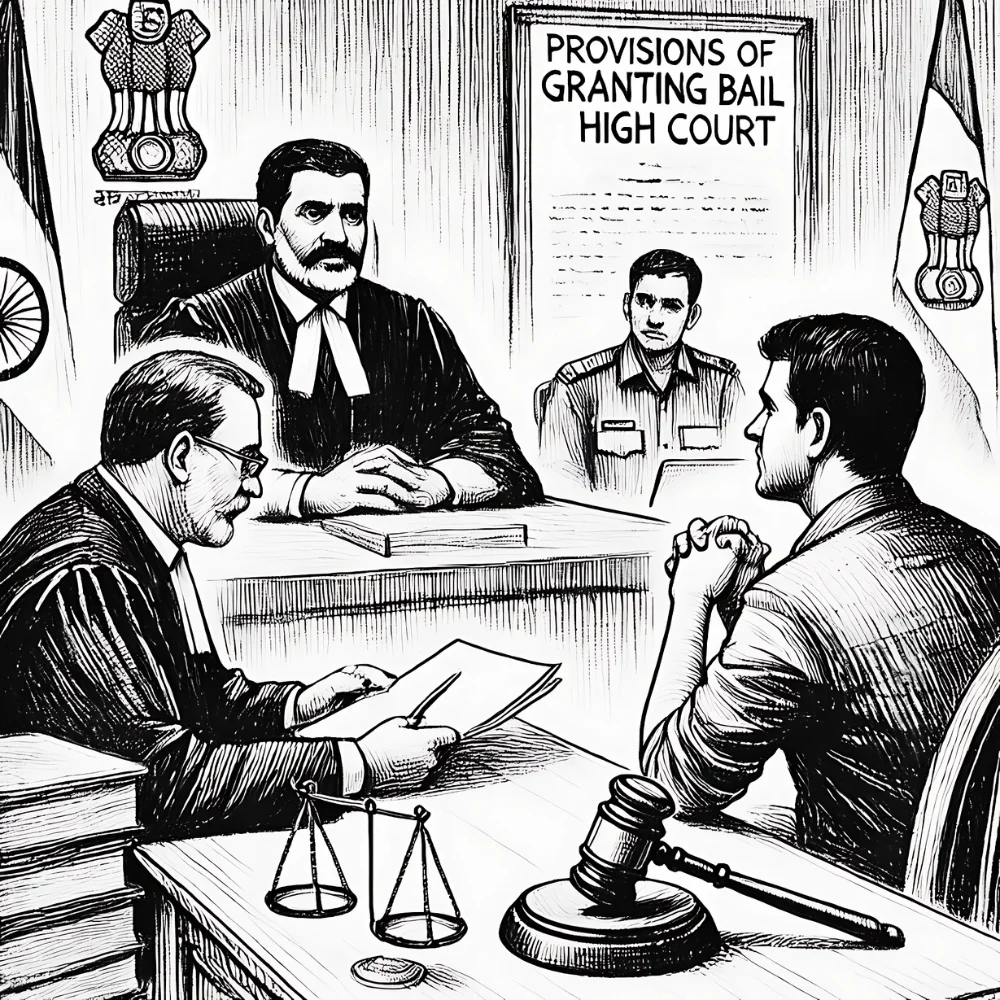Provisions of Granting Bail by High Court
Overview
Bail provisions under the BNS and BNSS legal framework allow for the conditional release of an accused before trial. While lower courts have the authority to grant bail, the High Court holds broader discretionary powers, particularly in cases where bail has been denied by lower courts.
The High Court plays a crucial role in balancing individual liberty with judicial proceedings, granting bail based on the severity of the offense and ensuring the accused complies with court appearances. This article explores the legal framework, conditions, and distinctions between bailable and non-bailable offenses under BNS and BNSS law.
Provisions of Granting Bail by High Court
The High Court grants bail in situations where lower courts deny or revoke it. Under the relevant provisions of BNS and BNSS law, the High Court has the authority to release an accused on bail in serious offenses while considering the circumstances of the case.
Special Powers of the High Court
Under the BNS and BNSS legal framework, the High Court has the authority to grant bail for offenses involving significant imprisonment, including cases of abetment and conspiracy. The court may impose specific conditions, modify lower court decisions, and revoke bail if necessary.
Key Considerations for Granting Bail:
- Reasonable grounds to believe the accused is not guilty.
- The accused is a minor, a woman, or is suffering from a severe medical condition.
- The High Court must provide well-reasoned justifications when granting or refusing bail.
Types of Offenses and Bail Considerations
The BNS and BNSS legal principles uphold the right to liberty, reinforcing that bail should be granted unless there are compelling reasons for denial.
- Bailable Offenses: Bail is granted as a right.
- Non-Bailable Offenses: Bail is at the discretion of the court, considering offense severity, available evidence, and potential flight risk.
- Failure to comply with bail conditions may lead to its cancellation.
Types of Bail by High Court
- Regular Bail – Granted to an accused in police custody under BNS and BNSS provisions.
- Interim Bail – Temporary bail pending a final decision.
- Anticipatory Bail – Pre-arrest bail under BNS and BNSS for non-bailable offenses.
Bail Under Special Laws
Certain offenses under BNS and BNSS laws impose stricter bail conditions, requiring the accused to provide substantial proof of innocence or minimal risk.
- The court must assess if the accused is unlikely to commit further offenses while on bail.
- Bail may be denied if national security or public safety is at risk.
How We Assist in Bail Matters
- Confidential & Trustworthy Service: We ensure complete confidentiality of personal details and case documents, safeguarding client privacy throughout the legal process.
- Expert Legal Guidance: Our experienced lawyers provide strategic advice and procedural clarity to strengthen your bail application.
- Hassle-Free Process: Our legal associates handle all paperwork and court formalities, reducing stress and ensuring a smooth legal experience.
- Top-Tier Legal Representation: We connect you with specialized criminal defense lawyers who have extensive experience in securing bail under High Court jurisdiction.




Reviews
There are no reviews yet.